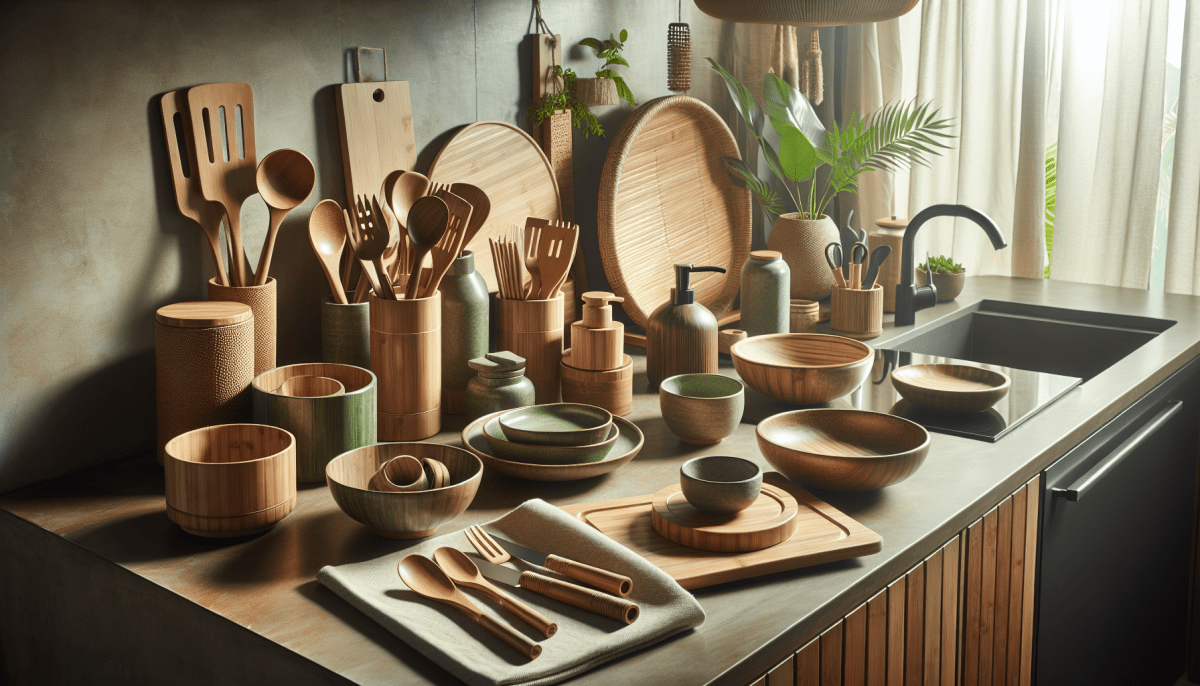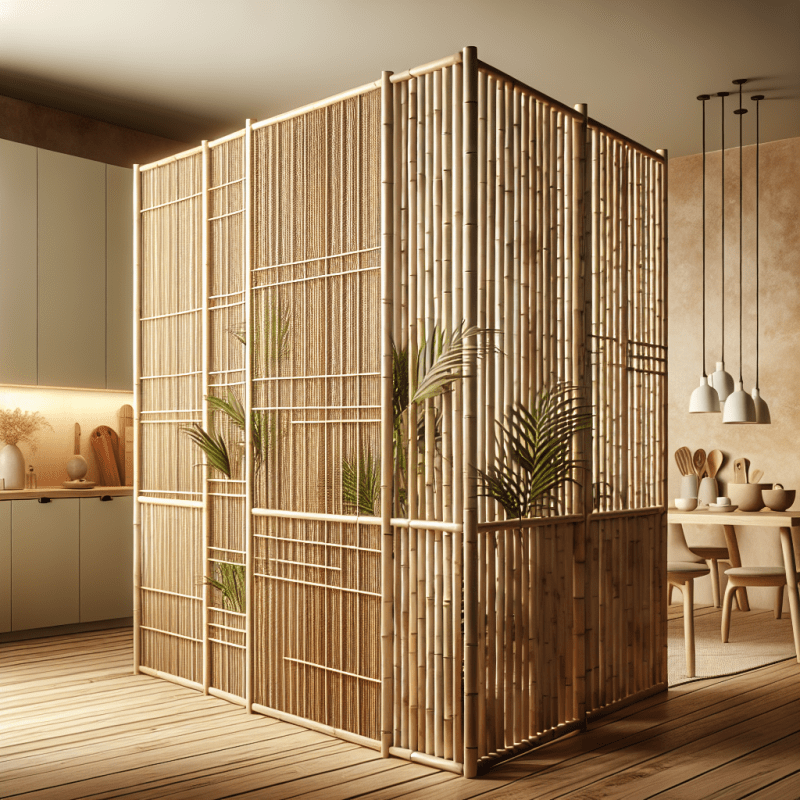The Environmental Benefits of Bamboo: A Sustainable Solution for a Greener Future
Bamboo is a versatile and sustainable resource that offers numerous environmental benefits. As the world continues to prioritize sustainability and combating climate change, bamboo emerges as a promising solution for a greener future. Let’s explore the environmental advantages of this remarkable plant.
1. Rapid Growth
One of the most remarkable properties of bamboo is its incredibly rapid growth. It is known to be the fastest-growing plant in the world, making it an easily renewable resource. Some species of bamboo can grow up to 91 centimeters (36 inches) in just 24 hours! This impressive growth rate allows bamboo to be harvested and replenished much quicker compared to traditional timber sources, which take many years to mature.
2. Carbon Sequestration
Bamboo plays a significant role in carbon sequestration. Like most plants, bamboo absorbs carbon dioxide (CO2) from the atmosphere during photosynthesis. However, bamboo has a higher capacity for CO2 absorption than many other plants, making it an efficient tool in the fight against climate change. Bamboo forests are known to sequester around 30% more carbon compared to other forests or crops.
3. Reduced Deforestation
Due to its fast growth and versatility, bamboo has the potential to reduce deforestation. The demand for timber and wood-based products has often led to the destruction of forests, causing severe environmental damage and loss of biodiversity. However, bamboo can be harvested selectively without requiring replanting, preventing further deforestation. By using bamboo as an alternative to traditional timber, we can help protect our forests and preserve delicate ecosystems.
4. Soil Erosion Prevention
Bamboo has an extensive root system that helps to stabilize soil and prevent erosion. This is particularly valuable in areas prone to heavy rainfall, where erosion can lead to landslides and the degradation of fertile land. The dense network of bamboo roots binds the soil together, reducing soil erosion and maintaining the integrity of the land.
5. Water Conservation
As bamboo grows, it naturally helps to conserve water resources. It has a unique ability to consume a large amount of water, making it an effective tool for managing water runoff, particularly in areas vulnerable to flooding. Additionally, bamboo requires minimal water to grow successfully, which is a crucial advantage in regions facing water scarcity or drought.
6. Versatility and Endless Applications
Another remarkable aspect of bamboo is its versatility and the wide range of applications it offers. It can be used as a building material, for furniture, textiles, paper, packaging, and even as a renewable source of energy. This versatility reduces our dependency on less sustainable materials and supports the development of a circular economy.
In conclusion, bamboo presents countless environmental benefits and serves as a sustainable solution for a greener future. Its rapid growth, carbon sequestration, reduced deforestation, soil erosion prevention, water conservation, and versatility make it a valuable resource in the fight against climate change and the preservation of our planet's resources.
Bamboo as a Versatile and Renewable Resource: From Construction to Textiles
Bamboo has long been recognized as a versatile and renewable resource, offering a wide range of uses across various industries. From construction to textiles, this remarkable plant has proven to be an eco-friendly alternative to traditional materials. Let's explore some of the many ways in which bamboo is being utilized.
1. Construction:
One of the most well-known applications of bamboo is in the field of construction. Due to its impressive strength and durability, bamboo has been used as a building material for centuries. In fact, it has been referred to as the "steel of the poor" due to its incredible tensile strength. Bamboo is often used as a replacement for timber in the construction of houses, bridges, and even scaffolding. Not only is it lightweight and flexible, but also highly sustainable, as it regenerates much faster than traditional wood.
2. Furniture:
Bamboo furniture has gained popularity in recent years due to its aesthetic appeal and sustainable nature. The fast growth rate of bamboo makes it an ideal resource for producing various furniture items such as chairs, tables, and even beds. Additionally, bamboo furniture is durable and resistant to moisture, making it suitable for both indoor and outdoor use. This versatile material offers a more sustainable alternative to traditional wooden furniture, which often involves deforestation.
3. Textiles:
Bamboo fibers have gained recognition as a sustainable and eco-friendly alternative to conventional textiles. The process of transforming bamboo into fabric involves a mechanical or chemical process, resulting in soft and breathable textiles. Bamboo textiles offer various benefits, such as moisture-wicking properties, antimicrobial qualities, and durability. Additionally, bamboo requires fewer resources and pesticides compared to other conventional textile crops like cotton. Bamboo-based clothing and home textiles are growing in popularity, especially among environmentally conscious consumers.
4. Paper:
Bamboo is increasingly being used as a raw material for paper production. The rapid growth rate of bamboo makes it a highly renewable source of fiber. Bamboo paper not only offers similar qualities to traditional wood-based paper, but it also has the advantage of being more sustainable. By using bamboo instead of trees, we can reduce deforestation and promote the conservation of our valuable forests.
5. Energy Production:
Bamboo is also utilized as a source of renewable energy. Its fast growth allows it to be harvested and used as biomass, providing a sustainable alternative to fossil fuels. Bamboo biomass can be converted into biofuel or used directly as a source of heat and electricity. As a carbon-neutral energy source, bamboo contributes to reduced emissions and a greener future.
In summary, bamboo's versatility as a renewable resource is truly remarkable. From its applications in construction and furniture to textiles and paper production, bamboo provides sustainable alternatives to traditional materials. As we continue to seek eco-friendly solutions, bamboo's role in various industries cannot be underestimated. Embracing bamboo can help us move closer to a more sustainable and environmentally conscious future.
Embracing Bamboo: How Consumers and Businesses can Support Sustainability through Bamboo Products
Embracing Bamboo: How Consumers and Businesses can Support Sustainability through Bamboo Products
In recent years, there has been a significant shift towards embracing sustainable and eco-friendly alternatives in various industries. Bamboo, a fast-growing renewable resource, has emerged as one of the most prominent choices for creating sustainable products. Its versatility, durability, and low environmental impact have made it an ideal material for both consumers and businesses to support sustainability efforts. Let's explore how bamboo products can contribute to a greener future.
Bamboo: An Eco-friendly Superstar
Unlike traditional hardwoods that take decades to grow, bamboo is one of the fastest-growing plants on Earth. It can reach full maturity within three to five years, making it an exceptionally renewable resource. Additionally, bamboo requires no replanting, as it regenerates from its extensive root system. This rapid growth and renewal process help conserve soil and reduce greenhouse gases, making bamboo an eco-friendly superstar.
Bamboo for Consumers
Consumers have the power to make sustainable choices by opting for bamboo products in their everyday lives. Bamboo can be used to create a wide range of items such as furniture, flooring, clothing, and kitchenware. When compared to conventional alternatives, bamboo products often have a significantly lower carbon footprint due to the plant's sustainable growth properties. By choosing bamboo over other materials, consumers can minimize their environmental impact without compromising on quality or style.
Furthermore, bamboo products possess natural antibacterial properties, making them a healthier option for personal care and kitchenware items. Bamboo towels, sheets, and clothing are not only soft and luxurious but also hypoallergenic and resistant to microbes. Embracing bamboo in our homes can contribute to a cleaner and healthier environment for ourselves and future generations.
Bamboo for Businesses
Businesses play a crucial role in supporting sustainability and driving change. By incorporating bamboo into their production processes, companies can positively impact the environment. Bamboo-based packaging materials, for example, can replace single-use plastics or non-biodegradable materials, reducing waste and promoting a circular economy. Moreover, businesses can utilize bamboo for construction and interior design purposes, adopting a greener approach in their operations.
Besides its environmental benefits, bamboo can also prove to be an economically viable choice for businesses. The fast growth rate and high yield of bamboo make it a cost-effective resource for various industries. Moreover, as consumer demand for sustainable products continues to rise, businesses that embrace bamboo can gain a competitive advantage in the market.
Conclusion
With its incredible sustainability features, bamboo has the potential to revolutionize various industries and pave the way towards a greener future. As consumers and businesses, it is our responsibility to support the use of bamboo products, taking a step towards reducing our environmental footprint. By embracing bamboo, we can contribute to a more sustainable world for generations to come.


